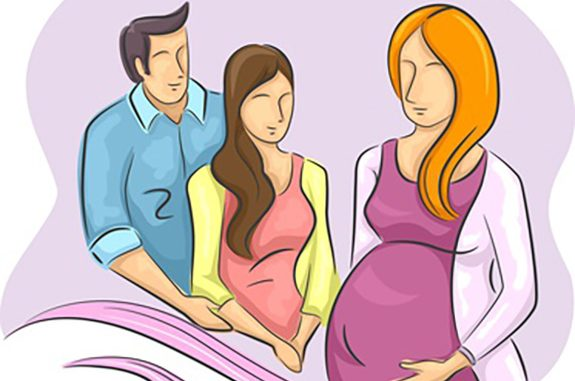Surrogacy has become an increasingly significant topic in Vietnam, particularly as medical advancements make assisted reproductive technologies more accessible. However, surrogacy laws in Vietnam remain relatively restrictive, especially concerning foreign individuals or couples seeking surrogacy arrangements within the country.

I. Legal Framework of Surrogacy in Vietnam
Surrogacy in Vietnam is strictly regulated under Article 95 of the 2014 Law on Marriage and Family and Decree 98/2016/NĐ-CP, ensuring it remains ethical and non-commercial. The key conditions include:
- For intended parents (the couple seeking surrogacy):
- Must be legally married.
- The wife must be medically certified as unable to conceive and give birth.
- The couple must have no biological child together.
- Must undergo legal, medical, and psychological counseling.
- For the surrogate mother:
- Must be a close relative of either the wife or husband.
- Must have previously given birth and can only act as a surrogate once.
- Must be of an appropriate age and medically certified as fit for pregnancy.
- If married, must have her husband’s written consent.
- Must undergo legal, medical, and psychological counseling.
- Additional regulations:
- Surrogacy must comply with assisted reproductive laws, prohibiting commercial surrogacy.
- Only authorized medical facilities with at least two years of IVF experience and a minimum of 1,000 IVF cycles per year can perform the procedure.
II. Can Foreigners Seek Surrogacy in Vietnam?
The short answer is no. Foreigners, including Chinese couples, cannot legally pursue surrogacy in Vietnam unless one spouse is Vietnamese and all legal conditions are met. Under Article 95 of the 2014 Law on Marriage and Family, surrogacy is only allowed for married couples where the wife is medically certified as unable to conceive, and the surrogate must be a close relative of either spouse. This means that a Vietnamese wife with a foreign (e.g., Chinese) husband can apply for surrogacy in Vietnam if they meet all legal requirements. However, two foreign spouses even if residing in Vietnam cannot engage in surrogacy, as the law does not allow international surrogacy arrangements. Additionally, commercial surrogacy is strictly prohibited, and any attempts to bypass these restrictions could lead to legal consequences.
III. Judicial Practice and Challenges
In practice, the enforcement of surrogacy regulations in Vietnam faces challenges, particularly regarding eligibility verification and potential under-the-table transactions. Although the law aims to prevent surrogacy from becoming a commercial enterprise, there have been cases of illegal surrogacy arrangements, often involving intermediaries. Courts have handled disputes regarding parental rights, particularly in cases where the surrogate changes her mind or where informal agreements exist outside legal boundaries. We will delve into details about such legal issues later on in other posts.
Hospitals authorized to conduct surrogacy procedures in Vietnam operate under stringent oversight, and any cases that deviate from legal provisions risk legal consequences. Despite these legal safeguards, enforcement gaps persist, creating a gray area where unregulated surrogacy arrangements might occur.
IV. Conclusion
Vietnam’s surrogacy laws reflect a cautious approach, prioritizing ethical concerns and preventing the commercialization of reproductive services. While altruistic surrogacy is permitted under strict conditions, foreign couples, including Chinese nationals, are not eligible to engage in surrogacy arrangements in Vietnam. Anyone considering surrogacy in Vietnam should seek thorough legal consultation to ensure compliance with the existing legal framework and avoid potential legal complications.



Comments